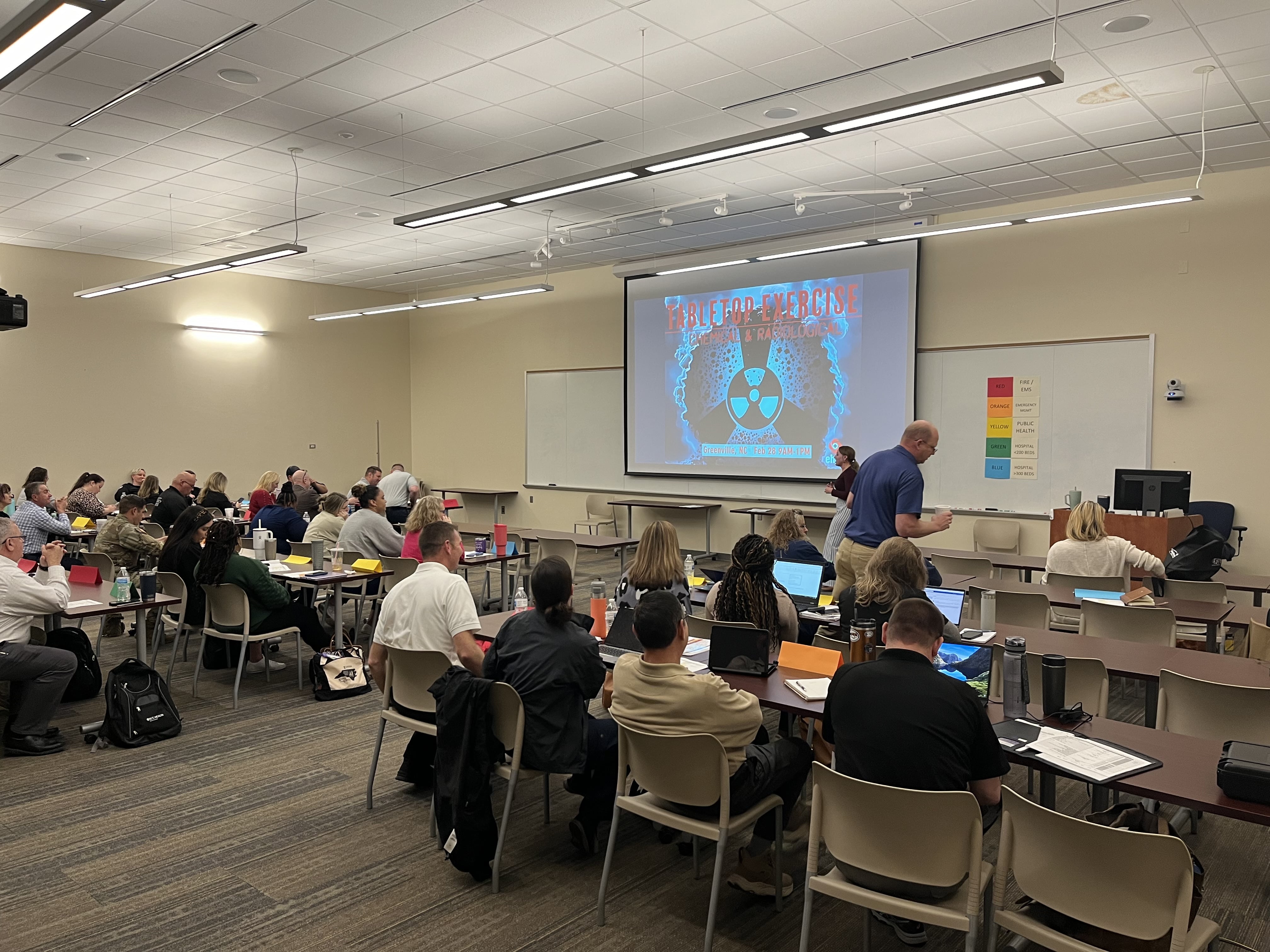The Eastern Healthcare Preparedness Coalition (EHPC) recently hosted a regional chemical and radiological tabletop exercise at the ECU Health Monroe Center with local and state partners, including those from hospitals, EMS, EastCare, public health, emergency management, hazmat teams from the Williamston Regional Response Team, and specialists from the 42nd Weapons of Mass Destruction Civil Support Team.
The tabletop exercise – intended to help ensure joint response coordination in response to a large-scale chemical or radiological event – included a brief training session followed by a plausible scenario that led to discussion of possible outcomes and discovery of gaps in preparedness planning.
Following the exercise, an after-action plan will be developed, followed by measures to ensure areas of opportunity are addressed.
The goal, according to event organizers, is to ensure all agencies are best prepared to serve the community.

“The tabletop was a fantastic opportunity to collaborate with partners and learn more about regional capabilities available to respond to a radiological incident,” said Christa Radford, Industrial Hygiene Consultant – Eastern Region at the North Carolina Department of Health and Human Services Public Health Preparedness and Response. “EHPC did a great job planning this exercise and bringing the correct response partners together for an extremely successful event.”
EHPC is a multidisciplinary team of medical and nonmedical professionals, established to provide mobile medical support for short and long term disasters or catastrophic events in eastern North Carolina. Roles in which the EHPC can provide support include set up and provision of a mobile field treatment facility, regional and state logistics support, and community alternate care site support.
As the leading health care provider in eastern North Carolina, ECU Health supports EHPC’s mission, in close partnership with other regional and statewide emergency response partners. These partnerships are essential to helping ensure communities across the East have access to high-quality resources and health care, particularly in the event of a disaster situation.
“I feel this exercise was crucial for our disaster preparedness and response,” said Nat Gladding, manager of Hospital Operations at ECU Health Beaufort Hospital. “It helped us assess our readiness, opportunities, and improve coordination between emergency response agencies. The exercise simulated a real-life scenario, allowing agencies the opportunity to practice their regional response to a disaster of this nature. Participation in disaster drills and exercises promote enhancement of our response for the communities of eastern North Carolina.”